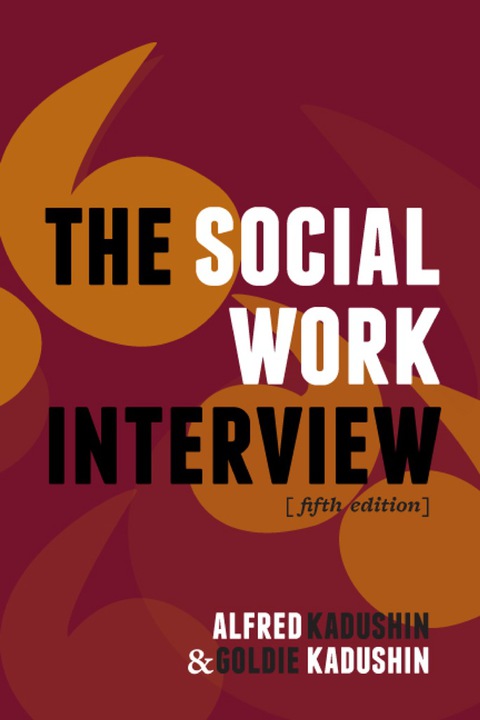Description
Efnisyfirlit
- Cover
- Title Page
- Copyright
- Dedication
- Contents
- Acknowledgments
- Introduction
- Part One. General Orientation and Basic Concepts of Interviewing and Communication
- 1. Defining and Characterizing the Social Work Interview
- The Interview Process
- Defining the Interview and Distinguishing an Interview from a Conversation
- Defining the Social Work Interview
- Alternatives to and Modifications of the Interview
- 2. The Interview as Communication
- Defining Communication and Its Essential Elements
- Metacommunication
- Sequential Steps in the Process of Communication
- Feedback
- Understanding the Message
- 3. Listening and Silence as Interview Techniques
- Hearing versus Listening
- Conditions for Good Listening
- Relating Listening to the Interview
- Social Listening versus Interview Listening
- The Value of Knowledge for Listening
- Guidelines for Listening
- 4. Nonverbal Communication
- Sources of Nonverbal Communication
- Significance of Nonverbal Communication for Interviewing
- Process Considerations
- Nonverbal Communication Problems
- 5. Establishing a Relationship
- Defining the Relationship
- The Significance of a Positive Relationship
- The Empirical Confirmation of Relationship’s Significance
- Developing a Positive Relationship
- Relationships as an Interactional Event
- Inner Attitudes and Expressed Behaviors
- Process for a Purpose
- Part Two. Sequential Phases in the interview Process and Associated Techniques
- 6. The Introductory Phase
- The Interviewee’s Background
- The Interviewer’s Background
- Becoming a Social Work Interviewee
- Selecting and Locating an Agency
- The Interviewers’ Preparations
- Nonagency Settings
- The Start of the Interview
- 7. The Problem Exploration Phase
- The Meaning and Sequence of Techniques
- Attending Behaviors and Minimal Encouragements
- Paraphrasing
- Reflection
- Summarizing
- Transitions
- Reaching for Feelings
- Discouraging Expression of Feelings
- Assessment
- 8. The Developmental Phase: Problem-Solving Interventions
- Clarification
- Interpretation
- Confrontation
- Self-Disclosure
- Sharing Information
- Giving Bad News
- 9. The Developmental Phase: More Problem-Solving Interventions
- Support and Reassurance
- Advice
- Silence
- Humor: An Interview Intervention
- Figures of Speech
- Environmental Modification
- Integration of Interviewing Skills
- 10. The Developmental Phase: Questioning Techniques
- Question Objectives
- General Classifications: Open and Closed Questions
- Other Dimensions
- Probing Questions
- Formulation and Phrasing: Some Common Errors
- Additional Guidelines for formulating Questions
- Interviewers’ Preparation for Asking Questions
- 11. Termination and Evaluation
- Termination Techniques
- Summary and Postinterview Conversation
- Review and Evaluation
- Part Three. Special Problems in interviewing
- 12. Cross-Cultural Interviewing
- Racial/Ethnic Minority Differences
- Self-Awareness: Racial/Ethnic Minority Differences
- Knowledge: Racial/Ethnic Minority Differences
- Skills: Racial/Ethnic Minority Differences
- Sexual Orientation Differences
- Self-Awareness: Sexual Orientation Differences
- Knowledge: Sexual Orientation Differences
- Skills: Sexual Orientation Differences
- Elderly Client Differences
- Self-Awareness: Elderly Client Differences
- Knowledge: Elderly Client Differences
- Skills: Elderly Client Differences
- 13. Problematic Interviews
- Involuntary Interviewees
- The Child Sexual Abuse Interview
- Part Four. The Essence of the Good Interview
- 14. The Competent Interviewer
- Personality Attributes
- Need for Knowledge
- Resolving Antithetical Demands
- Distinguishing More and Less Competent Interviewers
- L ’Envoi—
- Appendix: Transcribed Interview and Critique
- References
- Index







Reviews
There are no reviews yet.